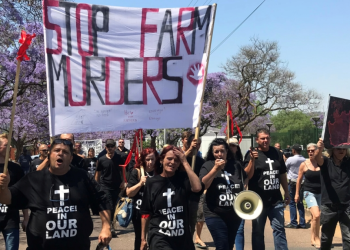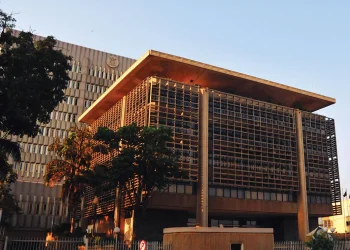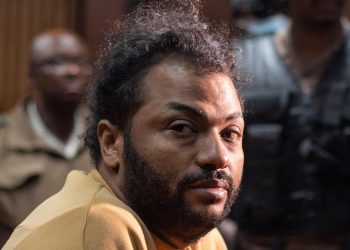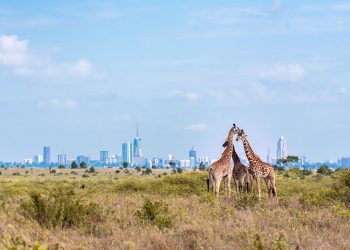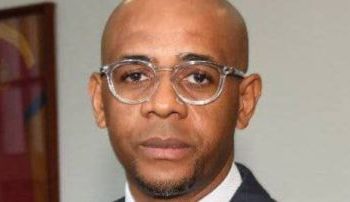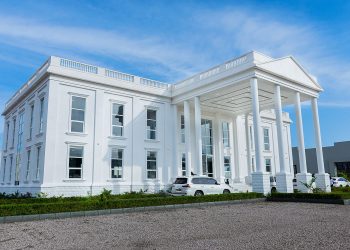Kampala, Uganda | From the mist-covered hills of southwestern Uganda to the bustling boardrooms of Kampala, Dr. Amos Nzeyi’s journey is a masterclass in resilience, foresight, and reinvention. His life has unfolded against the backdrop of Uganda’s most defining political and economic eras, taking him from humble beginnings in rural Kabale to the helm of one of East Africa’s most recognizable beverage brands. Along the way, he has been a rally champion, an exile, a transport magnate, a bakery pioneer, and a corporate leader whose influence has rippled far beyond his own enterprises.
What makes Nzeyi’s story compelling is not merely the scale of his success, but the arcs of transformation that define it — the risks taken, the setbacks endured, and the relentless drive to create value where others saw only uncertainty. Every chapter reveals a man who could pivot in the face of upheaval, turning adversity into opportunity, and opportunity into legacy.
The following timeline charts the milestones of a career spanning nearly eight decades — a path carved with determination, strategic daring, and an unshakable belief in the power of enterprise to change lives. It begins on 25 December 1947 in the scenic highlands of Kabale, where Nzeyi’s life story took root in a humble rural setting before expanding into a legacy that now spans timber, transport, manufacturing, food processing, and beverage production.
Roots in Kigezi: A Heritage Linked to Uganda’s Colonial Geography
Nzeyi’s father, Nathanel Sebugunzu, was a herdsman from Bufumbira in what is now Kisoro District. His life intersected with a key episode in Kigezi’s naming. As a boy herding cattle across Bufumbira’s hills, Sebugunzu encountered British missionaries traveling on foot from Rwanda to Kabale. They sought water, and he guided them to a pond known locally as Ekigyezi, used by both people and livestock. Mispronunciation by the missionaries gradually turned Ekigyezi into “Kigezi,” the name colonial administrators later used for the wider region covering present-day Kisoro, Kabale, Rubanda, and Rukiga districts.
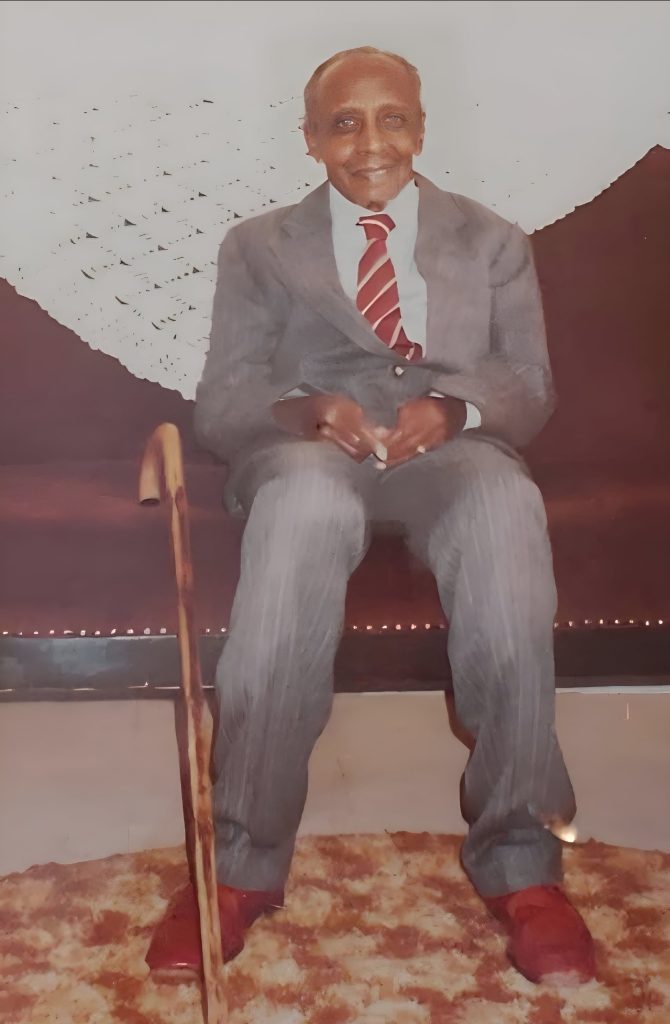
Impressed by the boy’s assistance, the missionaries invited him to Kabale, where he found work at the White Horse Inn, a newly established colonial guesthouse that would become a hub for missionaries, educators, and administrators. Earning three shillings a month — a notable wage at the time — Sebugunzu became a trusted figure. He later brought his younger brother, Ernesto Binyuku, into this world of early colonial administration; Binyuku would go on to serve as a Muruka Chief under British indirect rule.
Family oral history recounts that Sebugunzu may even have been present when Prince Albert Edward (later King Edward VII) was temporarily hidden near Lake Bunyonyi for security reasons — though this remains undocumented in official British records. Lake Edward, nearby, would later bear the prince’s name, anchoring the area in British imperial geography.
In a twist of fate decades later, his son, Amos Nzeyi, would buy the White Horse Inn, transforming a site once tied to colonial employment into a symbol of Ugandan ownership and family legacy.
Childhood Hardship and Early Sparks of Enterprise
Orphaned of his mother at an early age and growing up in financial hardship, young Amos’s entry into formal education came through an unexpected decision by his father. Observing his son’s determination — particularly a long, solitary walk into town — Mzee Sebugunzu enrolled him at Rwere Church School, a humble village institution with classes up to Primary Three.
Among his classmates were future national leaders: Amama Mbabazi and Ruhakana Rugunda (both future Prime Ministers of Uganda), and Emmanuel Tumusiime-Mutebile, who would serve as Governor of the Bank of Uganda. Nzeyi would later call his Primary One class one of the most remarkable in Uganda’s history for producing such high-ranking figures.
Business instincts emerged early. His father gave him a hen, Nyinabujegere, that proved to be a prolific egg-layer. Amos sold some eggs to pay school fees and hatched the rest to grow his flock. But his father would sometimes slaughter the chickens to host visiting relatives, eroding his small enterprise. The lesson: ownership can be fragile, and resilience is essential.
His next venture was selling eggs to local teachers on credit, assuming salaried professionals would be reliable. Instead, chronic salary delays meant debts went unpaid, forcing him to abandon the idea. Pivoting again, he began selling Mwana Akaba (scones) to classmates — cash-only. This venture succeeded, giving him a reliable income and his first clear lesson in cash flow management.
Fragmented Schooling and Harsh Lessons in Resilience
Nzeyi’s early education was repeatedly interrupted by lack of school fees. Over the years, he attended Rwere Church School, Kikungiri Primary, Muslim Primary, Bubaare Primary, and Kabami Primary, often sponsored by relatives in exchange for domestic labor. This barter arrangement left him with limited classroom time.
A formative humiliation occurred at Lower Kigezi High School, where he was publicly caned by the headmaster for failing to pay fees and then expelled. Though painful, he credits the incident with teaching him emotional endurance and self-reliance — qualities that would underpin his entrepreneurial life.
Journey to Kampala and Street-Level Business
In his teenage years, Nzeyi moved to Kampala through the help of his older brother, who worked for the Uganda Transport Company (UTC). With no money for a bus, he hitched a ride with truck driver Francis, taking three days to reach the capital. The arrival was a sensory shock — his first sight of tarmac roads and electric streetlights.
He briefly attended Kololo Primary School, known for its pristine white uniforms, but could not complete the term due to costs. His brother arranged private tutoring with Mr. Patel, an Asian teacher who also tutored his brother’s wife, giving Amos informal but valuable learning.
While education faltered, business opportunities opened. He began selling Tetracycline — nicknamed “double colour” — to long-distance truck drivers treating gonorrhea. Sourced cheaply through his cousin Leo Rwigyemera at Mulago Hospital, the antibiotic became a steady seller in truck stop areas like Nakivubo and Mengo Bakuli. His marketing strategy relied on urgency and claims of stronger quality, revealing an early talent for sales psychology.
The First and Last Job: Water Resources Development
At age 14, Nzeyi spotted an advert in the Uganda Argus. Water Resources Development (WRD), an Israeli construction firm, was hiring school dropouts for road works. He traveled back to Kabale and was hired as a “Boy Spanner,” assisting mechanics.
Within months, he was promoted to assistant to the chief engineer, Jacob, gaining hands-on experience with heavy machinery like Rolls-Royce compressors and overseeing fuel depots. He worked on major infrastructure projects including the Kabale–Ntungamo and Mbarara–Katunguru roads. After three years, he resigned, leaving with savings, mechanical skills, and the conviction that self-employment was his calling.
From Timber Contracts to Fleet Ownership
Back in Kabale, Nzeyi invested in supplying food to institutions like Kabale Hospital, Kigezi High School, and Butobere Secondary School. But the real breakthrough came in timber. Seeing cutters in Mafuga Forest laboring with manual saws, he realized the profit potential in buying directly and selling to urban construction projects.
Contracts soon flowed, including supplies for Ntinda Ministers’ Village, Bugolobi Flats, Communication House, Postel Building, and Nakasongola Military Barracks. His reliability impressed Engineer Okao and introduced him to figures like timber inspector Rebecca Kadaga (later Speaker of Parliament).
Profits enabled him to purchase three trucks, giving him transport independence. But Idi Amin’s regime brought danger: in 1972, the army seized his vehicles. Using his contacts, including Major Mukili, he recovered them, but he decided to move the fleet to Mombasa under the care of Rwandan businessman Gregory Karureta.
Rallying Glory and Forced Exile
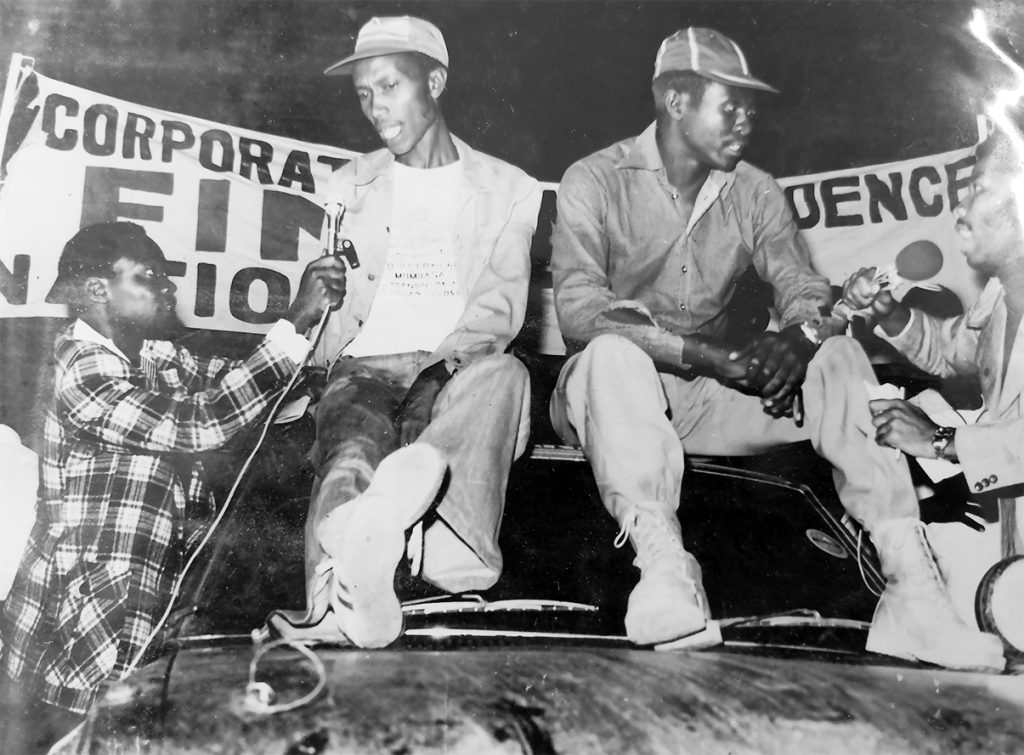
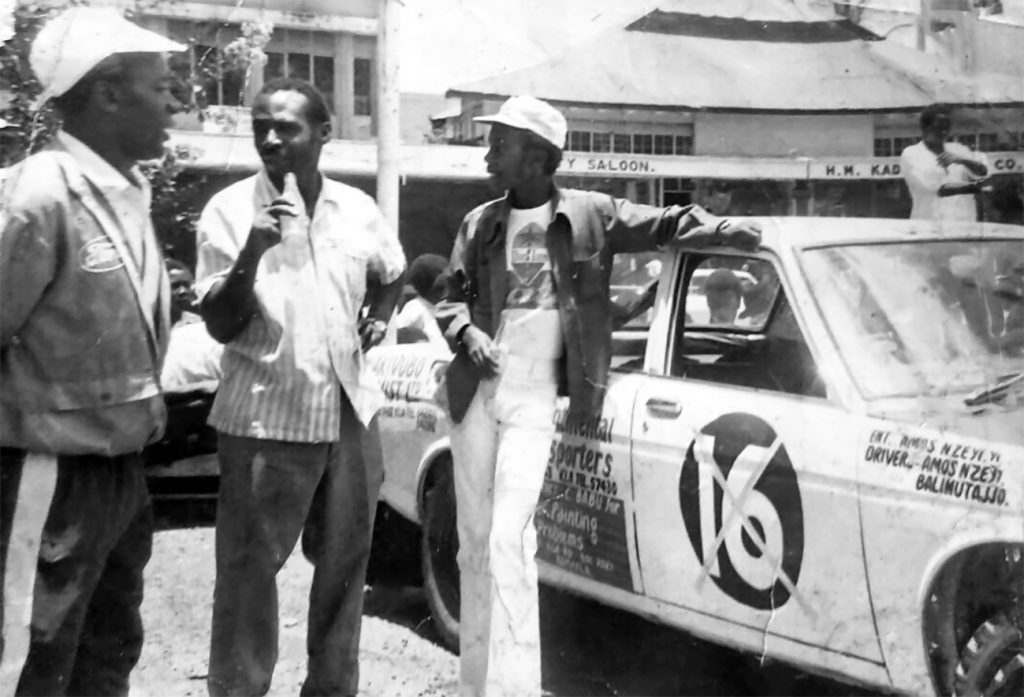
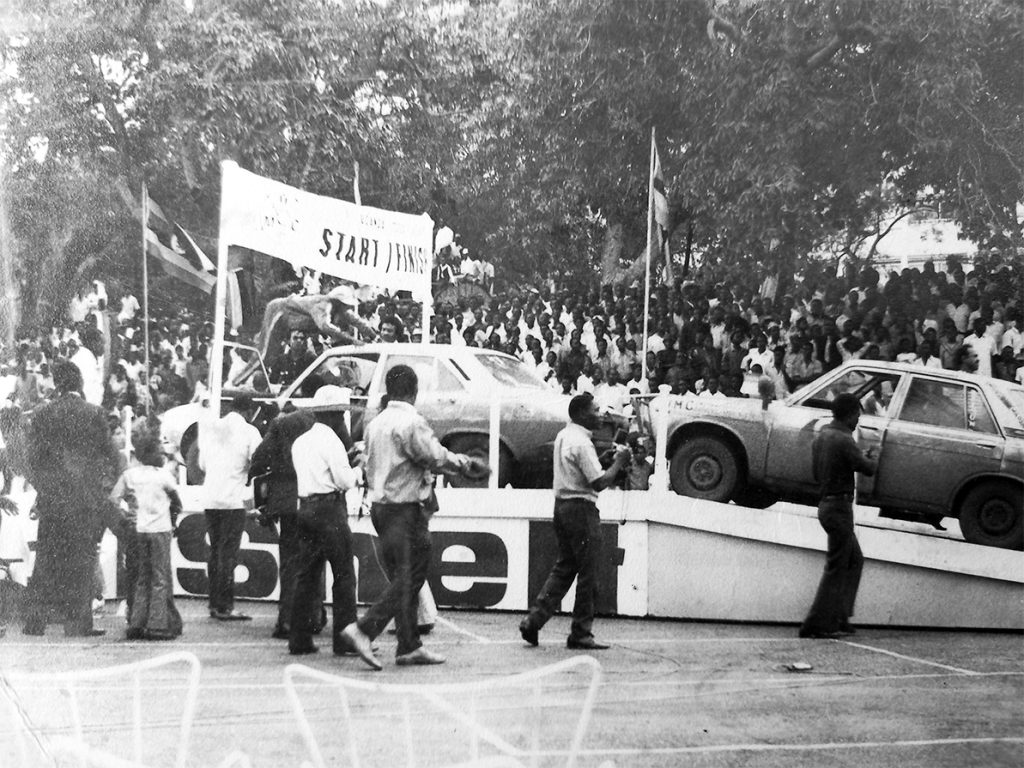
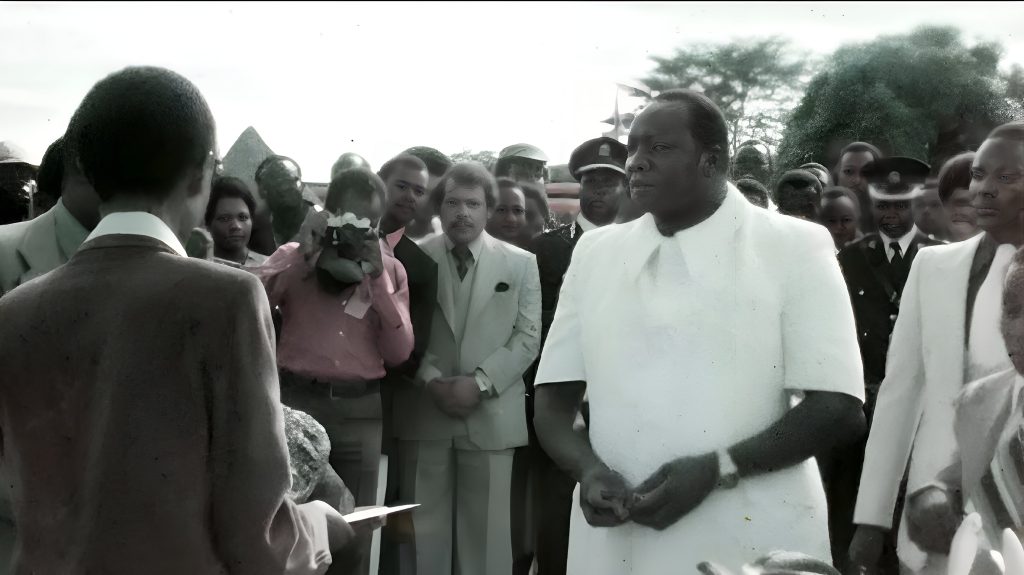
In the 1970s, Nzeyi emerged as a notable competitor in Uganda’s rallying scene, participating alongside drivers such as Arthur Brick, Paddy Brick, and Hajji Jjunju. In 1976, during the Organisation of African Unity (OAU) Summit hosted in Uganda, President Idi Amin organized a 6,000-kilometre rally across East Africa. The route extended through Uganda, Sudan (now South Sudan), Zaire (later renamed the Democratic Republic of the Congo), Rwanda, Burundi, parts of Tanzania, and Kenya. Driving a Datsun 180B SSS modified by Janspeed in London, Nzeyi won the event, a victory that was broadcast live across the country on Uganda Television (UTV) and radio Uganda (now renamed to Uganda Broadcasting Corporation [UBC]).
The win, however, brought unwanted scrutiny. Instead of the promised Mercedes-Benz 280, he was given a Korean-made Pony, and soon after, the State Research Bureau detained and beat him. A sympathetic officer urged him to flee, and he escaped to Kenya, leaving everything behind.
Kenya: Building a Regional Transport Powerhouse
In Nairobi, Nzeyi registered Intercontinental Transport Company Ltd with partners Chris Kayoboke, Amos Agaba, and Haruna Kalimba. At its height, the company operated more than 250 trucks across East Africa, with contracts from firms like Kenatco and Multiple Hauliers (EA) Ltd. He invested in Nairobi real estate, selling one property to Paul Orono Etiang, Uganda’s former Deputy Prime Minister.
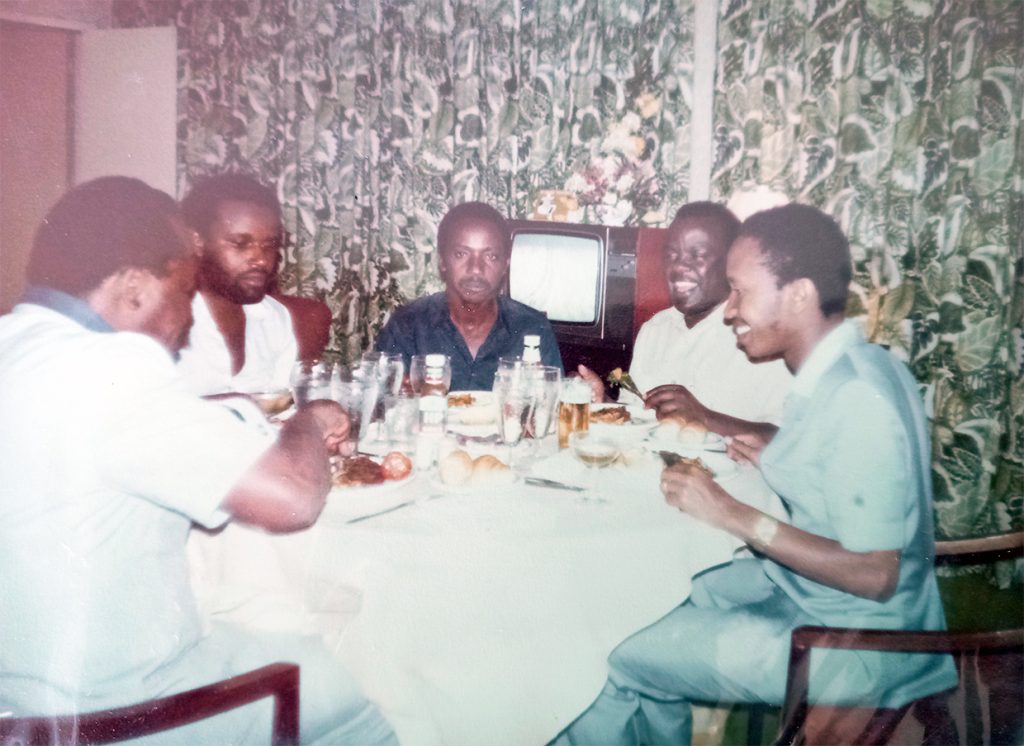
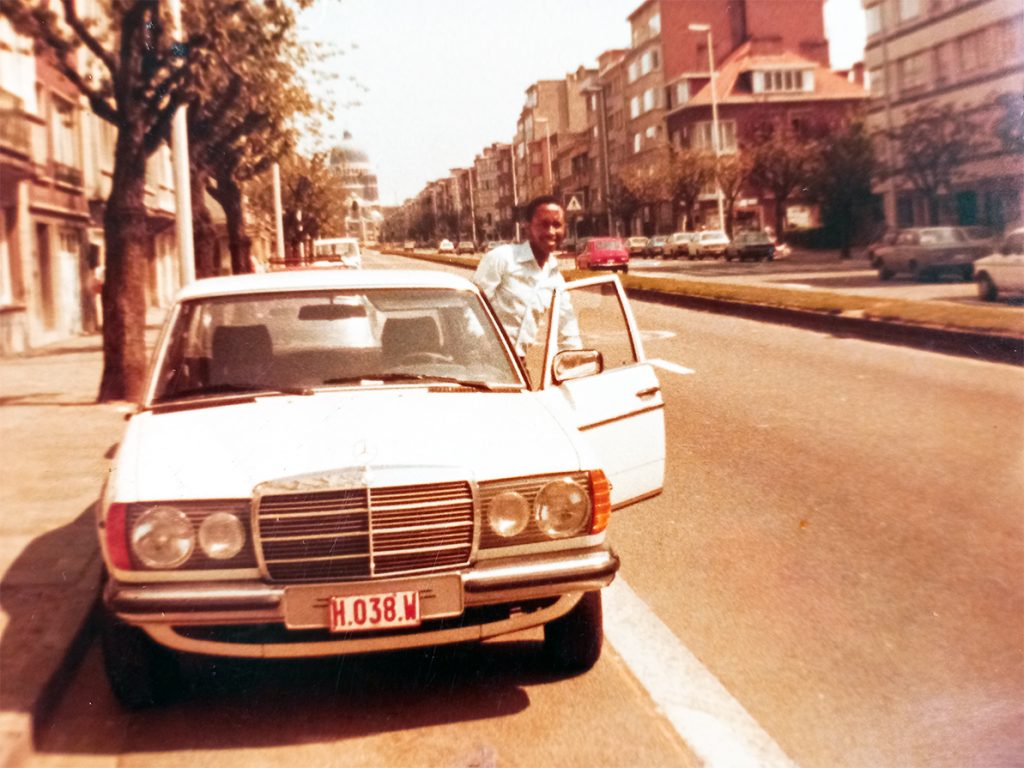
A brief return to Uganda in 1980 to campaign for the Uganda Patriotic Movement ended in detention in Kabale. He fled again, this time helping NRM exiles in Nairobi through housing and job placements. When Kenyan authorities prepared to deport prominent Ugandan exiles, Nzeyi escaped to Seychelles, then relocated to the UK.
Return and the Birth of Hot Loaf Bakery
After the NRM took power in January 1986, Nzeyi returned to Uganda and spotted a shortage of bread. He had already imported bakery equipment through liberated zones. On 28 February 1986, he launched Hot Loaf Bakery, the first major bread producer after the war. Managed by former Eliot Kenya production chief Matano Kadawa, the bakery remains in operation nearly four decades later.
Crown Beverages and the PepsiCo Partnership
In the late 1980s, crown cork shortages hampered Uganda’s beverage sector. Nzeyi established a crown cork factory, supplying Pepsi, Coca-Cola, and breweries regionally. This foothold led him to secure Uganda’s PepsiCo bottling franchise in the early 1990s. Partnering with Dan Kigozi and Christopher Kayoboke, he acquired the Lake Victoria Bottling Company during privatization, forming Crown Beverages Limited.
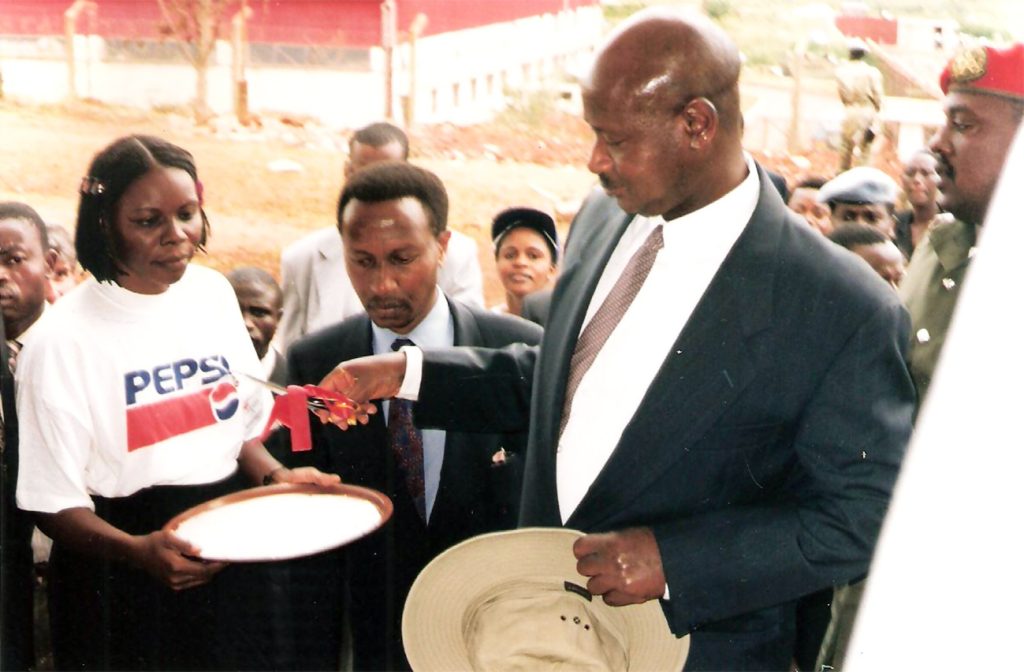
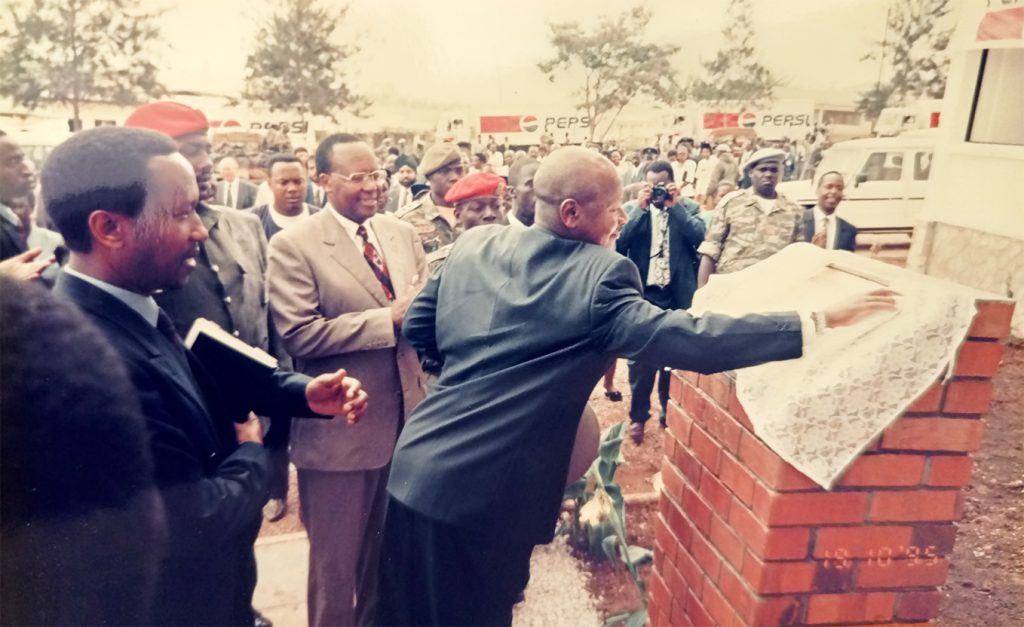
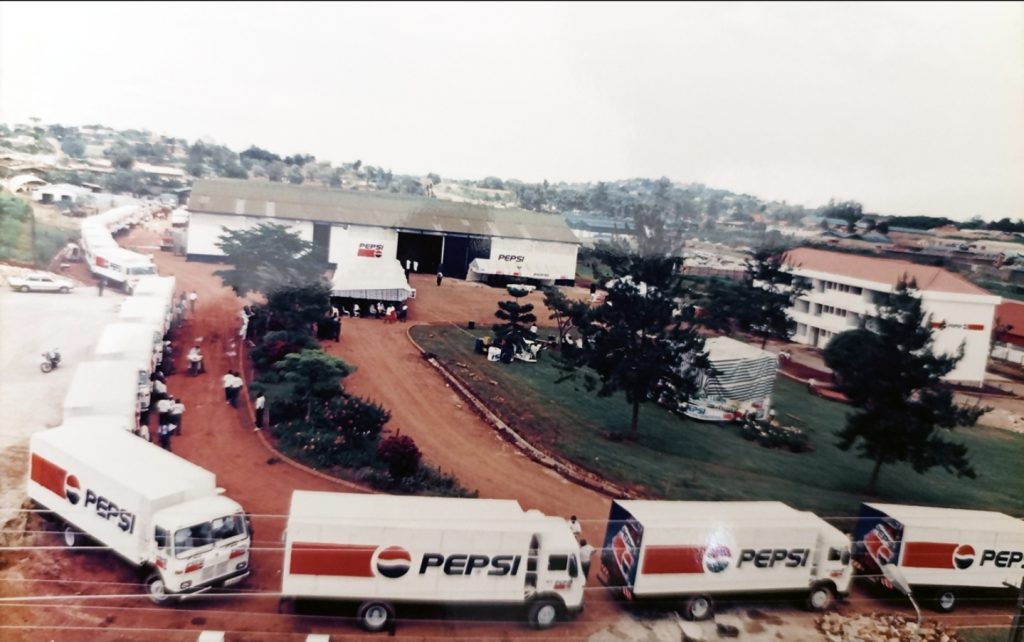
Under his leadership, production rose from 18 million cartons in 1993 to over 65 million, taking 70% of Uganda’s soda market. The company won awards, including the 2018 PepsiCo Bottler of the Year. In the same year, PepsiCo CEO Indra Nooyi visited Uganda for the 25th anniversary celebrations.
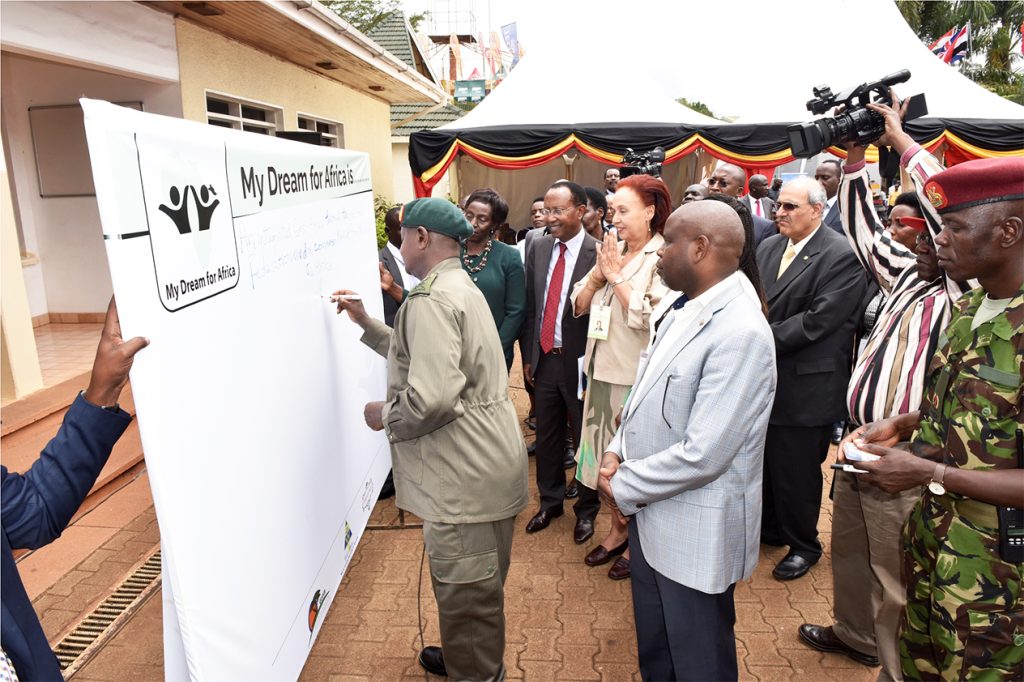
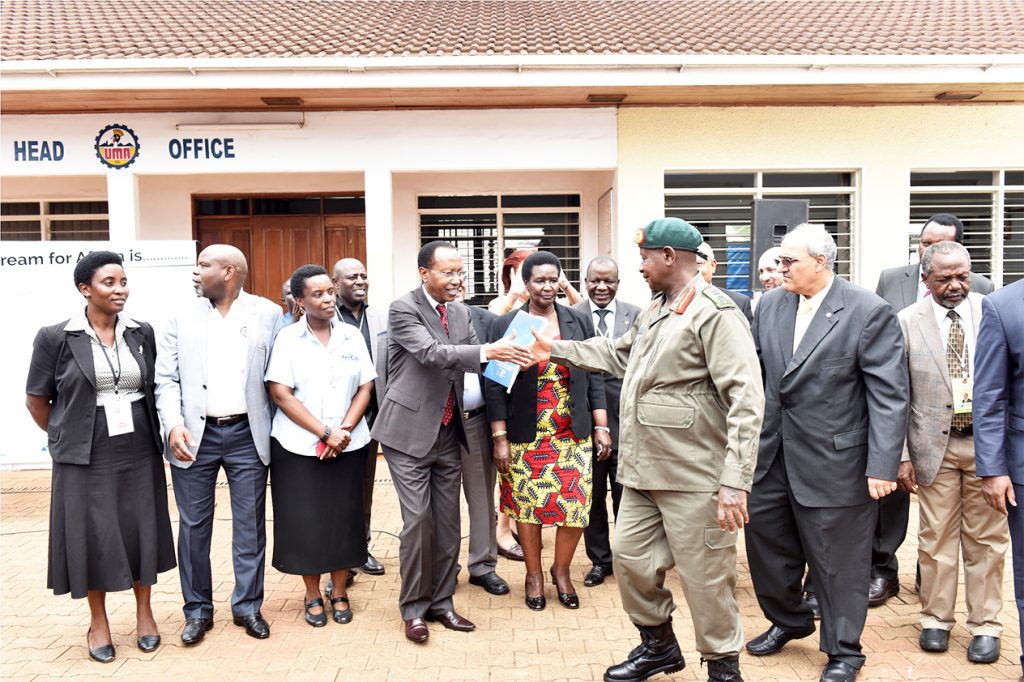
Temangalo Land Sale and NBCU Closure
In the late 2000s, Nzeyi sold 100 acres of Temangalo land to the National Social Security Fund for UGX 24 million per acre. The proceeds went into recapitalizing the National Bank of Commerce Uganda (NBCU), where he held a major stake. Despite reportedly meeting the UGX 15 billion threshold, NBCU was closed by the Bank of Uganda in September 2012. A parliamentary committee later found NBCU solvent at closure, sparking ongoing debate.
Sports, Diplomacy, and Business Philosophy
A squash enthusiast in earlier years, Nzeyi turned to golf in 1998 after playing in Hawaii alongside George H. W. Bush and Denis Thatcher. He founded the Palm Valley Golf and Country Club and played with stars like Tiger Woods and Rory McIlroy. Since 2018, he has served as Honorary Consul for Mauritius in Kampala.
Nzeyi’s business philosophy prioritizes people over capital or infrastructure, a belief shaped by strategic retreats with economists like Emmanuel Tumusiime-Mutebile and Mary Gumisiriza. He decentralizes leadership, appointing experienced executives as shareholders in his ventures.
Faith, Values, and the Moral Compass Behind the Businessman
For Dr. Amos Nzeyi, business success is inseparable from personal faith. He openly credits his resilience in the face of setbacks — whether political persecution, business losses, or personal tragedy — to a steadfast belief in God. In his worldview, integrity, energy, intelligence, and spirituality are the four cornerstones of a meaningful life, echoing principles similar to those championed by global business icons like Warren Buffett.
These values, Nzeyi says, have guided him through every major decision, from investing in volatile markets to handling high-stakes negotiations. They also underpin his belief that wealth carries a moral responsibility — that the privilege of success comes with an obligation to uplift others.
Corporate Social Responsibility: More Than Philanthropy
Nzeyi’s approach to corporate social responsibility (CSR) is both strategic and deeply personal. He sees CSR not as optional charity but as a spiritual calling — an integral part of doing business ethically. His philosophy is shaped by his own difficult childhood and reinforced by family experiences, including the health crisis of his son, Arthur.
This perspective has driven him to support projects in education, healthcare, and youth mentorship. His contributions have included sponsoring school infrastructure, funding medical treatment for the underprivileged, and providing mentorship platforms for aspiring entrepreneurs. To him, the value of these initiatives lies not just in immediate aid but in creating opportunities that foster long-term self-reliance.
An Educational Journey That Never Ended
Despite not completing formal schooling — his education was repeatedly interrupted by financial constraints — Nzeyi never abandoned the pursuit of knowledge. He has often described his early years with the Works and Roads Department (WRD) as the most formative “university” of his life, providing him with technical skills, problem-solving abilities, and operational discipline.
Nzeyi remains a strong advocate for experience-based learning, insisting that practical exposure, adaptability, and critical thinking can rival — and sometimes surpass — formal academic qualifications. In his view, the most important credential for success is not a certificate, but the ability to learn continuously from each situation.
A Leadership Model Built on Trust
One of Nzeyi’s distinctive traits as a business leader is his comfort with delegation. In ventures like Hot Loaf Bakery, he has appointed experienced CEOs as both shareholders and directors, deliberately giving them a vested interest in the business’s long-term success. This decentralized management model, he argues, ensures continuity and stability, even when he is physically absent.
His belief that people are the most critical factor in business success — above capital, infrastructure, or technology — was reinforced during strategic retreats, such as one held at the Imperial Resort Hotel in Entebbe. There, alongside leading Ugandan economic minds like Prof. Emmanuel Tumusiime-Mutebile, Tumusiime Godfrey, Johnny Kiruzu, and Mary Gumisiriza, the group unanimously concluded that human capital and leadership outrank all other resources.

Sports as a Networking and Development Platform
Beyond boardrooms and factories, sport has been a defining thread in Nzeyi’s life — first as a competitive rally driver in the 1970s, and later as a golfer. His shift to golf began almost accidentally during a 1998 PepsiCo centenary celebration in Hawaii, where he found himself on the course with global dignitaries, including PepsiCo Chairman Western Lincoln, Denis Thatcher, and former U.S. President George H. W. Bush. Despite having never played before, the experience inspired him to take up the sport.
Back in Uganda, he invested in the Palm Valley Golf and Country Club, which became both a personal retreat and a venue for hosting tournaments. His involvement in the sport expanded internationally, seeing him tee off alongside golfing legends such as Rory McIlroy, Sergio García, Ángel Cabrera, and Tiger Woods, including in the 2015 Omega Dubai Desert Classic Pro-Am.
For Nzeyi, golf is more than recreation — it is a platform for relationship-building, a way to engage with potential partners, clients, and policymakers in an environment that encourages conversation and trust.
Honorary Doctorate
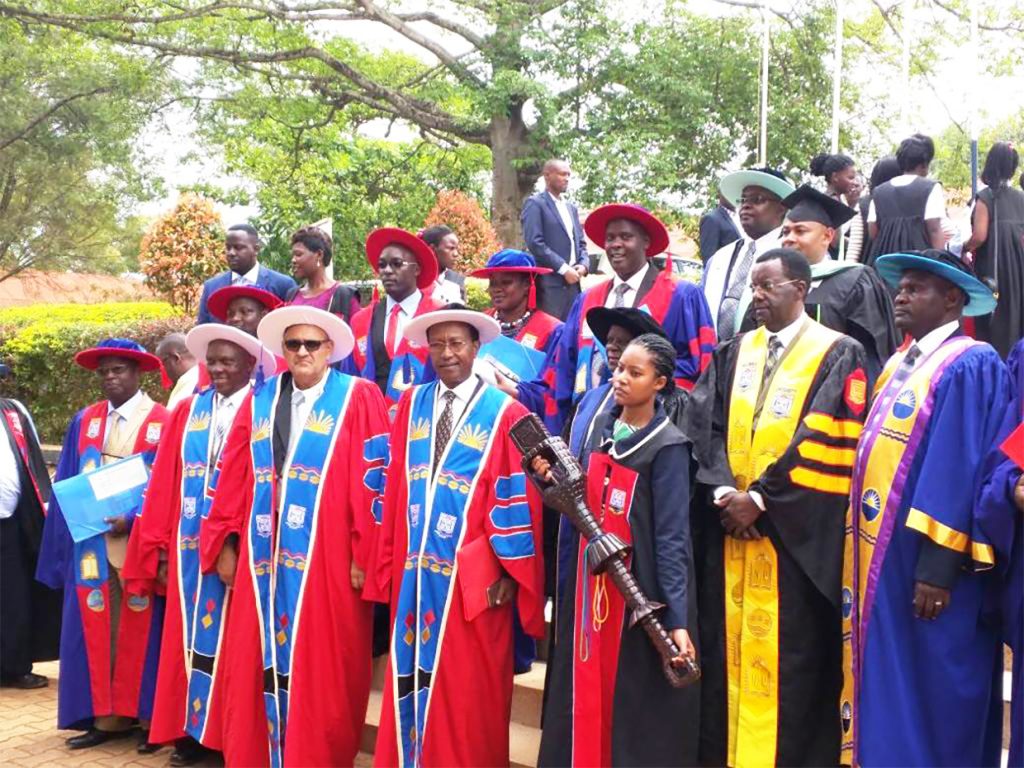
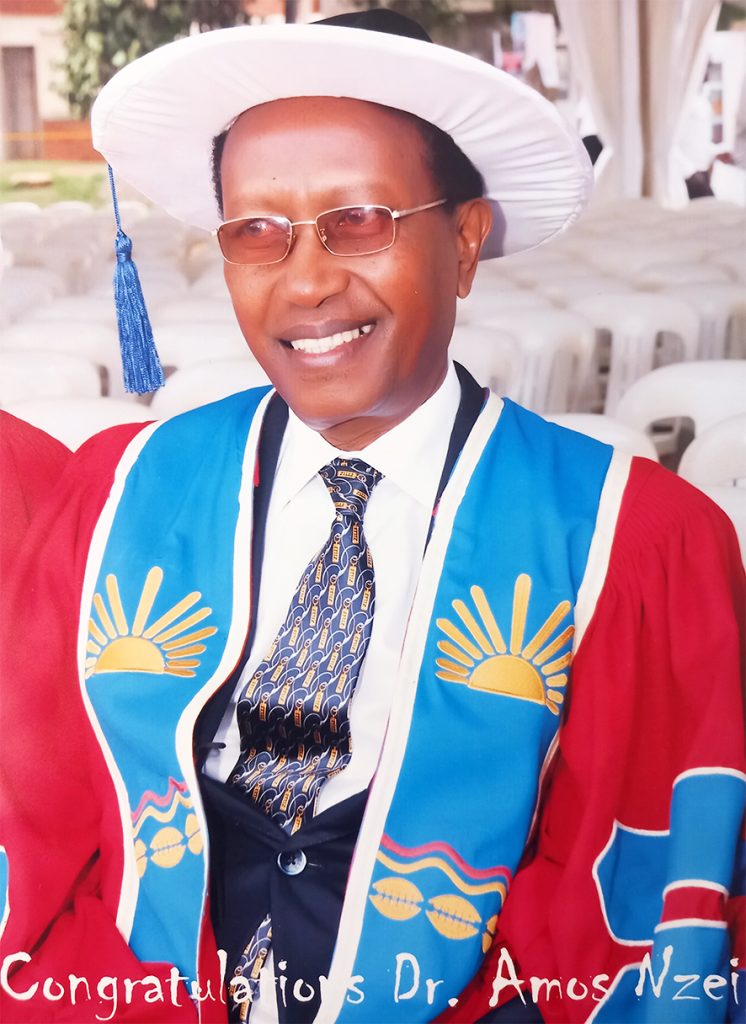
In November 2017, Amos Nzeyi was awarded an Honorary Doctorate of Letters by Nkumba University. The conferment took place during the university’s graduation ceremony held on 4 November 2017, in recognition of his contributions to Uganda’s business sector and his role in promoting entrepreneurship.
Diplomacy and Representation
In 2018, when Mauritius established its first official representation in Uganda, Nzeyi was appointed Head of Mission and Honorary Consul for the Mauritius Diplomatic Mission and Consulate in Kampala. The role recognized not only his business stature but also his capacity to foster bilateral relations. His work as Honorary Consul has involved promoting trade, investment, and cultural exchange between the two countries.
A Career Defined by Resilience and Reinvention
Looking back, Nzeyi’s journey traverses vastly different landscapes:
- The remote hills of Bufumbira, where his father helped name a region.
- The timber forests of Mafuga, where he learned to seize market gaps.
- The rally tracks of East Africa, where victory brought both fame and danger.
- The exile years in Nairobi, Seychelles, and the UK, where he rebuilt his fortune.
- The factory floors of Hot Loaf Bakery and Crown Beverages, where he oversaw the creation of market-leading brands.
Through every shift, he adapted — whether the challenge was political persecution, business competition, or macroeconomic change.
Legacy in Motion
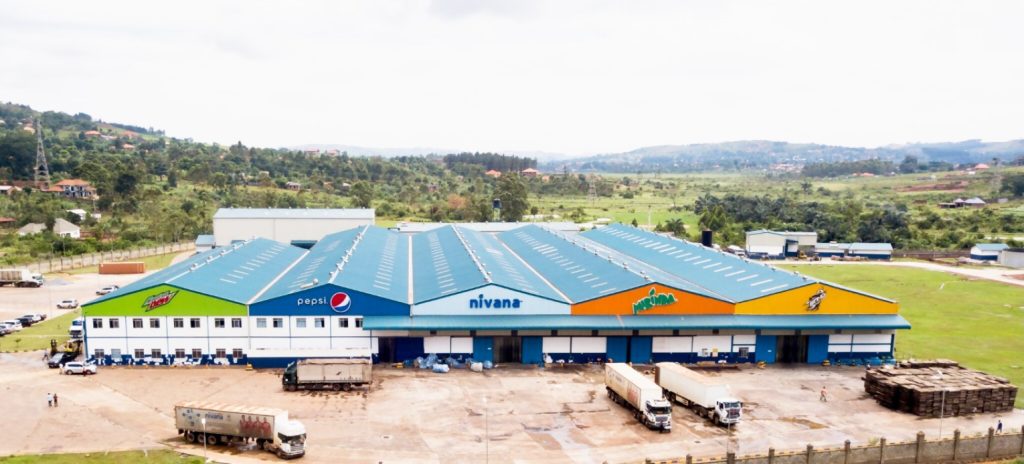
As of 2025, Dr. Amos Nzeyi’s name is synonymous with some of Uganda’s most enduring private enterprises. Under his stewardship, Crown Beverages Limited has grown into PepsiCo’s exclusive bottler in Uganda, employing thousands and contributing hundreds of billions of shillings annually in taxes. Hot Loaf Bakery, now in its 38th year, continues to feed a nation that once depended on bread imports.
But his legacy extends beyond balance sheets. It is found in the institutions he helped build, the executives he mentored, the communities he supported, and the national pride inspired by his rally victories. It is in the symbolic arc from a father’s colonial-era employment at the White Horse Inn to his own eventual ownership of that very establishment.
The life of Dr. Amos Nzeyi defies a single label. From the misty hills of Kabale to the commanding heights of Uganda’s corporate world, he has navigated the roughest terrains — literal and political — with calculated daring. His enterprises have shaped industries from soft drinks to bakery to golf, while his diplomatic and philanthropic roles have extended his influence far beyond commerce. Through political storms, economic shifts, and personal trials, he has demonstrated that resilience, vision, and adaptability can transform a childhood marked by scarcity into a legacy of national significance — a legacy built one calculated risk, one bold decision, and one unshakable belief at a time.

